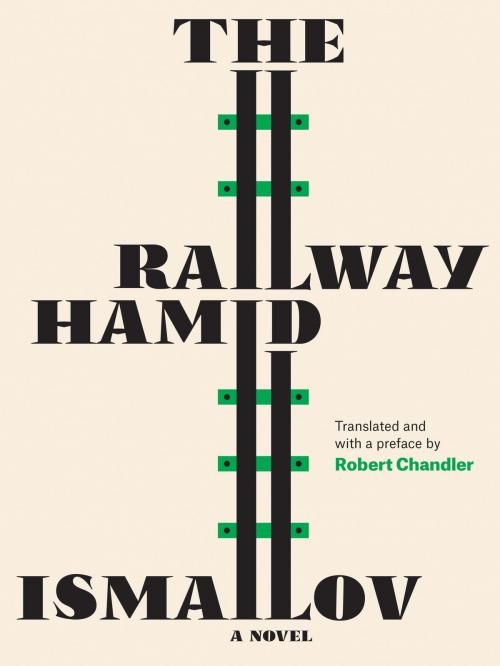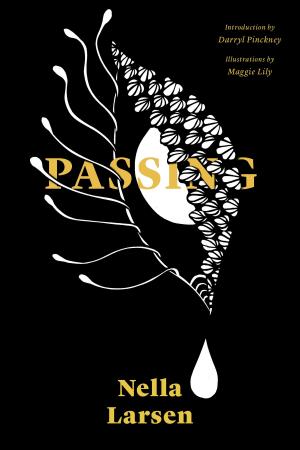| Author: | Hamid Ismailov, Robert Chandler | ISBN: | 9781632060181 |
| Publisher: | Restless Books | Publication: | March 19, 2015 |
| Imprint: | Language: | English |
| Author: | Hamid Ismailov, Robert Chandler |
| ISBN: | 9781632060181 |
| Publisher: | Restless Books |
| Publication: | March 19, 2015 |
| Imprint: | |
| Language: | English |
Description
“In the steppe near Tashkent they came upon a never-ending ladder with wooden rungs and iron rails and that stretched across the earth from horizon to horizon ... Whistling and thundering, a snake-like wonder hurtled past them, packed both on the inside and on top with infidels shouting and waving their hands. ‘The End of the World!’ thought both Mahmud-Hodja the Sunni and Djebral the Shiite.”
Set mainly in Uzbekistan between 1900 and 1980, The Railway introduces to us the inhabitants of the small town of Gilas on the ancient Silk Route. Among those whose stories we hear are Mefody-Jurisprudence, the town's alcoholic intellectual; Father Ioann, a Russian priest; Kara-Musayev the Younger, the chief of police; and Umarali-Moneybags, the old moneylender. Their colorful lives offer a unique and comic picture of a little-known land populated by outgoing Mullahs, incoming Bolsheviks, and a plethora of Uzbeks, Russians, Persians, Jews, Koreans, Tatars, and Gypsies.
At the heart of both the town and the novel stands the railway station—a source of income and influence, and a connection to the greater world beyond the town. Rich and picaresque, The Railway is full of color. Sophisticated yet with a naive delight in storytelling, it chronicles the dramatic changes felt throughout Central Asia in the early twentieth century.
Reviews
"A wonderfully engaging novel."
—Melissa McClements, Financial Times
"Imagine Márquez's One Hundred Years of Solitude on the empty plains of central Asia… The Railway is a bold and inventive, if damning, whirl through Central Asia's 20th-century history."
—Charlotte Hobson, Daily Telegraph
"It is a work of rare beauty—an utterly readable, compelling book."
—Craig Murray, New Statesman
"A poet's novel, full of memorable descriptive passages and heart-wrenching asides."
—Independent
"All picaresque exuberance, a jumble of influences from Persian to Soviet and beyond."
—Catherine Lockerbie, Sunday Herald
About the Author
Born in an ancient city in what is now Kyrgyzstan, Hamid Ismailov is an Uzbek novelist and poet who was forced to leave his home in Tashkent when his writing brought him to the attention of government officials. Under threat of arrest, he moved to London and joined the BBC World Service, where he is now Head of the Central Asian Service. In addition to journalism, Ismailov is a prolific writer of poetry and prose, and his books have been published in Uzbek, Russian, French, German, Turkish, English and other languages. His work is still banned in Uzbekistan. He is the author of many novels, includingSobranie Utonchyonnyh, Le Vagabond Flamboyant, Two Lost to Life, The Railway, Hostage to Celestial Turks, Googling for Soul, The Underground, A Poet and Bin-Laden, and The Dead Lake; poetry collections including Sad (Garden) and Pustynya (Desert); and books of visual poetry including Post Faustum and Kniga Otsutstvi. He has translated Russian and Western classics into Uzbek, and Uzbek and Persian classics into Russian and several Western languages.
About the Translator
Robert Chandler graduated with a BA in Russian and English Literature from Leeds University. His translations from Russian include Vasily Grossman’s Life and Fate and Everything Flows, Leskov’s Lady Macbeth of Mtsensk and Aleksander Pushkin’s The Captain’s Daughter. His co-translations of Andrey Platonov have won prizes both in the UK and in the USA. His translation of Hamid Ismailov’s The Railway won the AATSEEL prize for 2007 and received a special commendation from the judges of the 2007 Rossica Translation Prize. He is the editor of Russian Short Stories from Pushkin to Buida and the author of Alexander Pushkin (in the Hesperus ‘Brief Lives’ series). He has also translated selections of the poetry of Sappho and of Apollinaire.
Description
“In the steppe near Tashkent they came upon a never-ending ladder with wooden rungs and iron rails and that stretched across the earth from horizon to horizon ... Whistling and thundering, a snake-like wonder hurtled past them, packed both on the inside and on top with infidels shouting and waving their hands. ‘The End of the World!’ thought both Mahmud-Hodja the Sunni and Djebral the Shiite.”
Set mainly in Uzbekistan between 1900 and 1980, The Railway introduces to us the inhabitants of the small town of Gilas on the ancient Silk Route. Among those whose stories we hear are Mefody-Jurisprudence, the town's alcoholic intellectual; Father Ioann, a Russian priest; Kara-Musayev the Younger, the chief of police; and Umarali-Moneybags, the old moneylender. Their colorful lives offer a unique and comic picture of a little-known land populated by outgoing Mullahs, incoming Bolsheviks, and a plethora of Uzbeks, Russians, Persians, Jews, Koreans, Tatars, and Gypsies.
At the heart of both the town and the novel stands the railway station—a source of income and influence, and a connection to the greater world beyond the town. Rich and picaresque, The Railway is full of color. Sophisticated yet with a naive delight in storytelling, it chronicles the dramatic changes felt throughout Central Asia in the early twentieth century.
Reviews
"A wonderfully engaging novel."
—Melissa McClements, Financial Times
"Imagine Márquez's One Hundred Years of Solitude on the empty plains of central Asia… The Railway is a bold and inventive, if damning, whirl through Central Asia's 20th-century history."
—Charlotte Hobson, Daily Telegraph
"It is a work of rare beauty—an utterly readable, compelling book."
—Craig Murray, New Statesman
"A poet's novel, full of memorable descriptive passages and heart-wrenching asides."
—Independent
"All picaresque exuberance, a jumble of influences from Persian to Soviet and beyond."
—Catherine Lockerbie, Sunday Herald
About the Author
Born in an ancient city in what is now Kyrgyzstan, Hamid Ismailov is an Uzbek novelist and poet who was forced to leave his home in Tashkent when his writing brought him to the attention of government officials. Under threat of arrest, he moved to London and joined the BBC World Service, where he is now Head of the Central Asian Service. In addition to journalism, Ismailov is a prolific writer of poetry and prose, and his books have been published in Uzbek, Russian, French, German, Turkish, English and other languages. His work is still banned in Uzbekistan. He is the author of many novels, includingSobranie Utonchyonnyh, Le Vagabond Flamboyant, Two Lost to Life, The Railway, Hostage to Celestial Turks, Googling for Soul, The Underground, A Poet and Bin-Laden, and The Dead Lake; poetry collections including Sad (Garden) and Pustynya (Desert); and books of visual poetry including Post Faustum and Kniga Otsutstvi. He has translated Russian and Western classics into Uzbek, and Uzbek and Persian classics into Russian and several Western languages.
About the Translator
Robert Chandler graduated with a BA in Russian and English Literature from Leeds University. His translations from Russian include Vasily Grossman’s Life and Fate and Everything Flows, Leskov’s Lady Macbeth of Mtsensk and Aleksander Pushkin’s The Captain’s Daughter. His co-translations of Andrey Platonov have won prizes both in the UK and in the USA. His translation of Hamid Ismailov’s The Railway won the AATSEEL prize for 2007 and received a special commendation from the judges of the 2007 Rossica Translation Prize. He is the editor of Russian Short Stories from Pushkin to Buida and the author of Alexander Pushkin (in the Hesperus ‘Brief Lives’ series). He has also translated selections of the poetry of Sappho and of Apollinaire.















